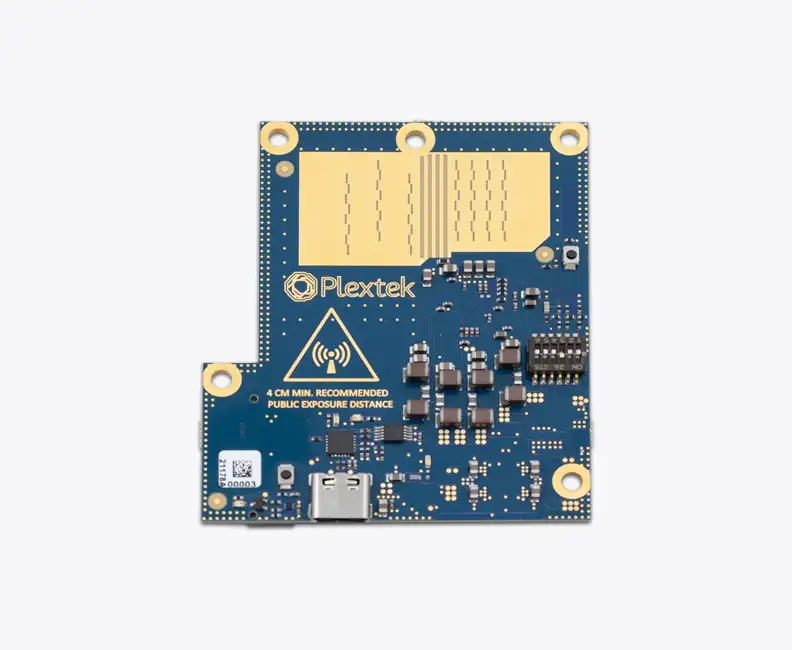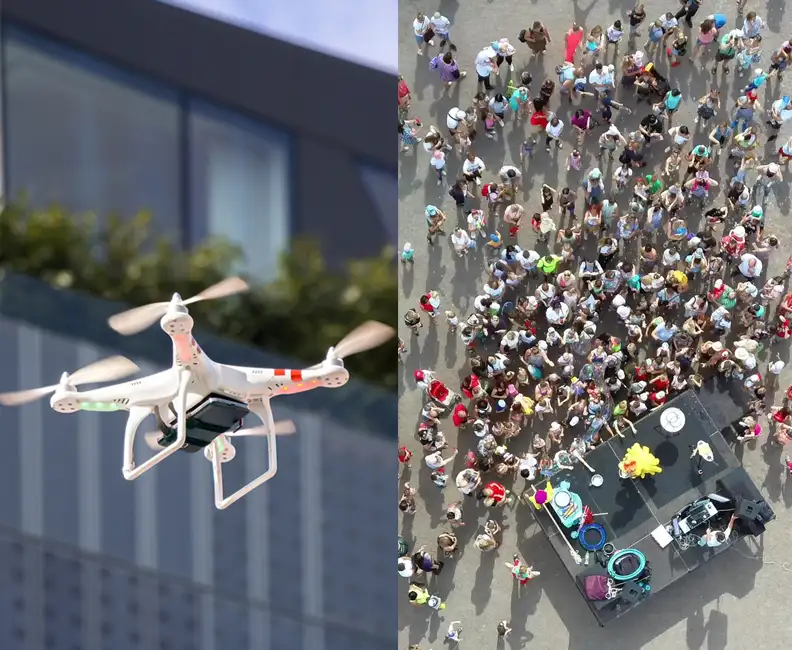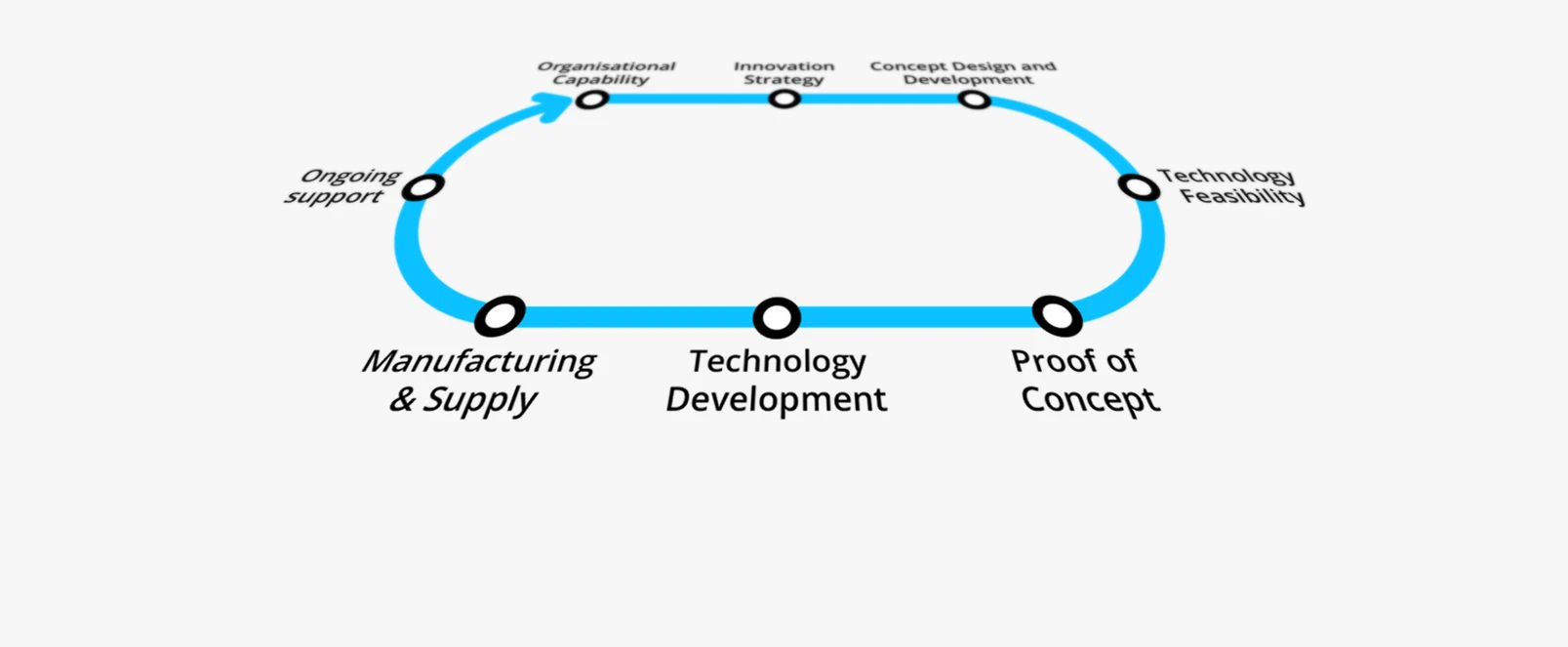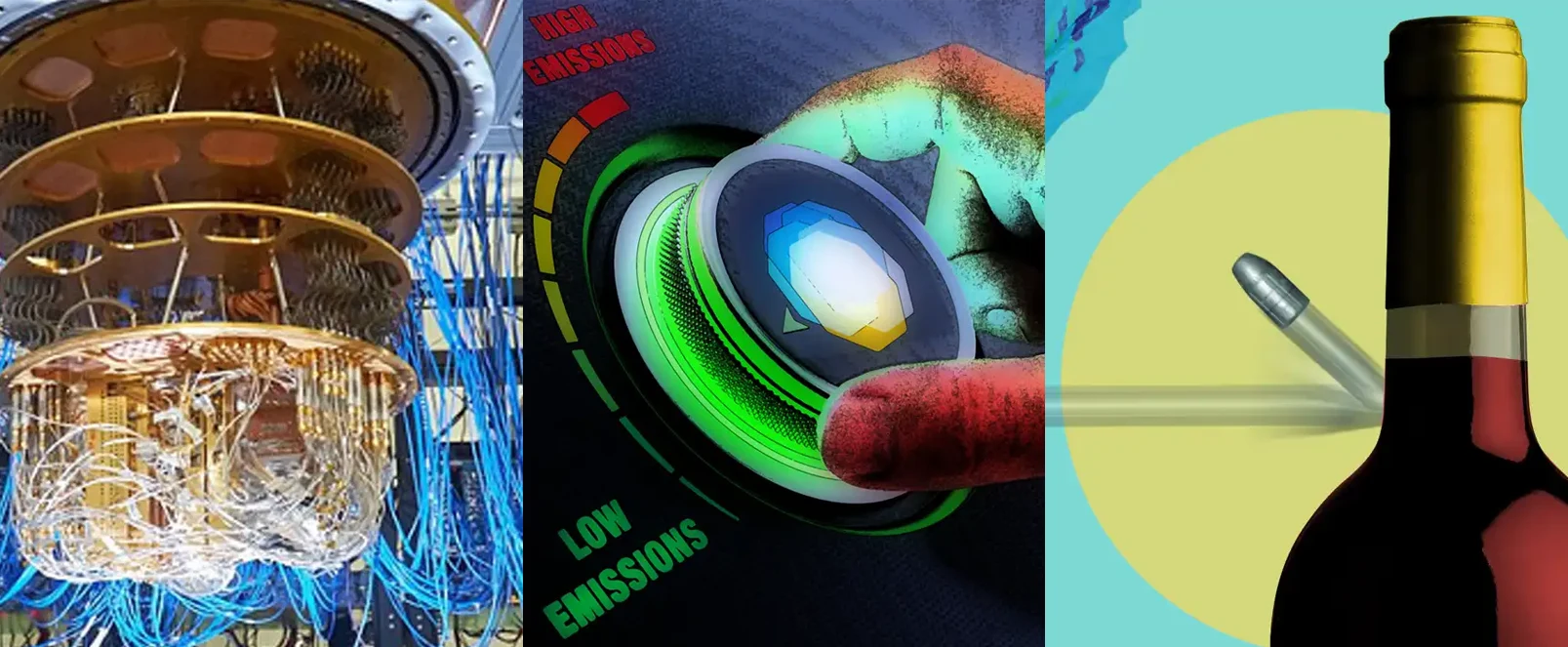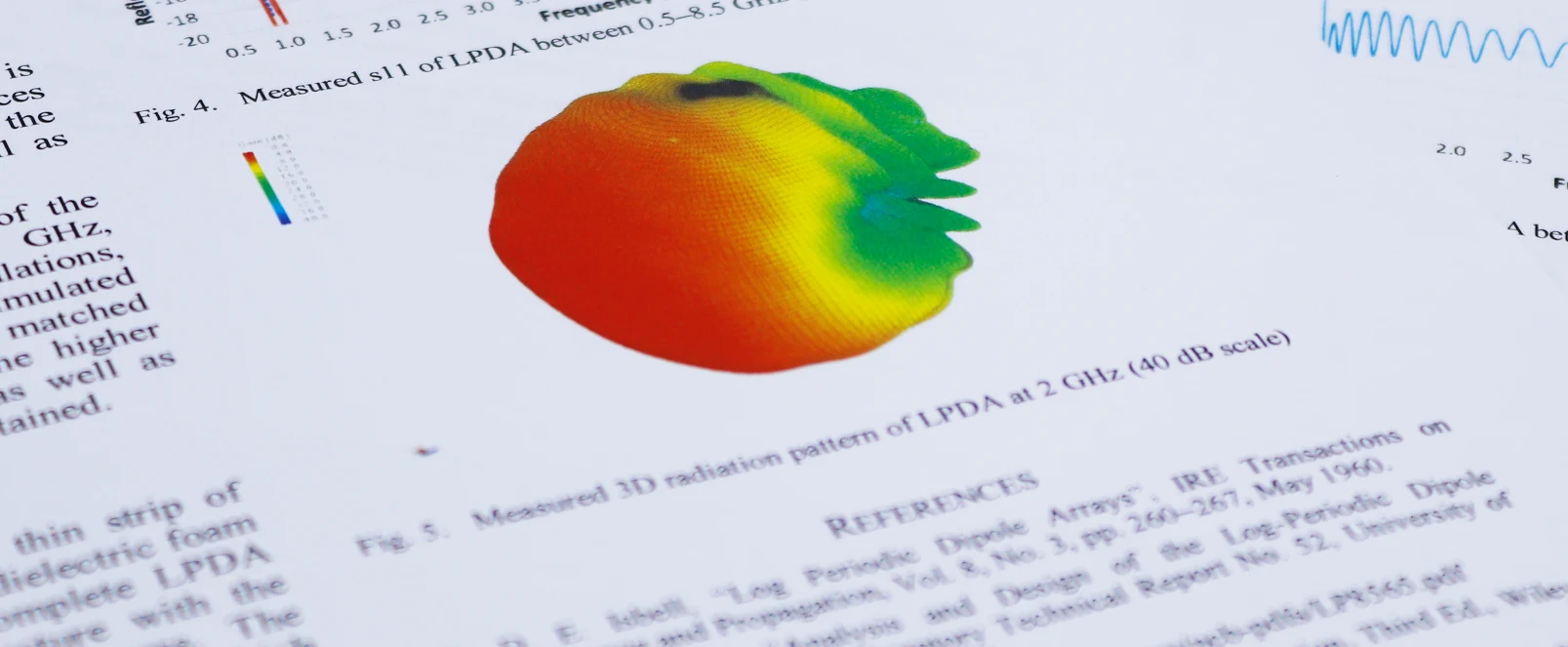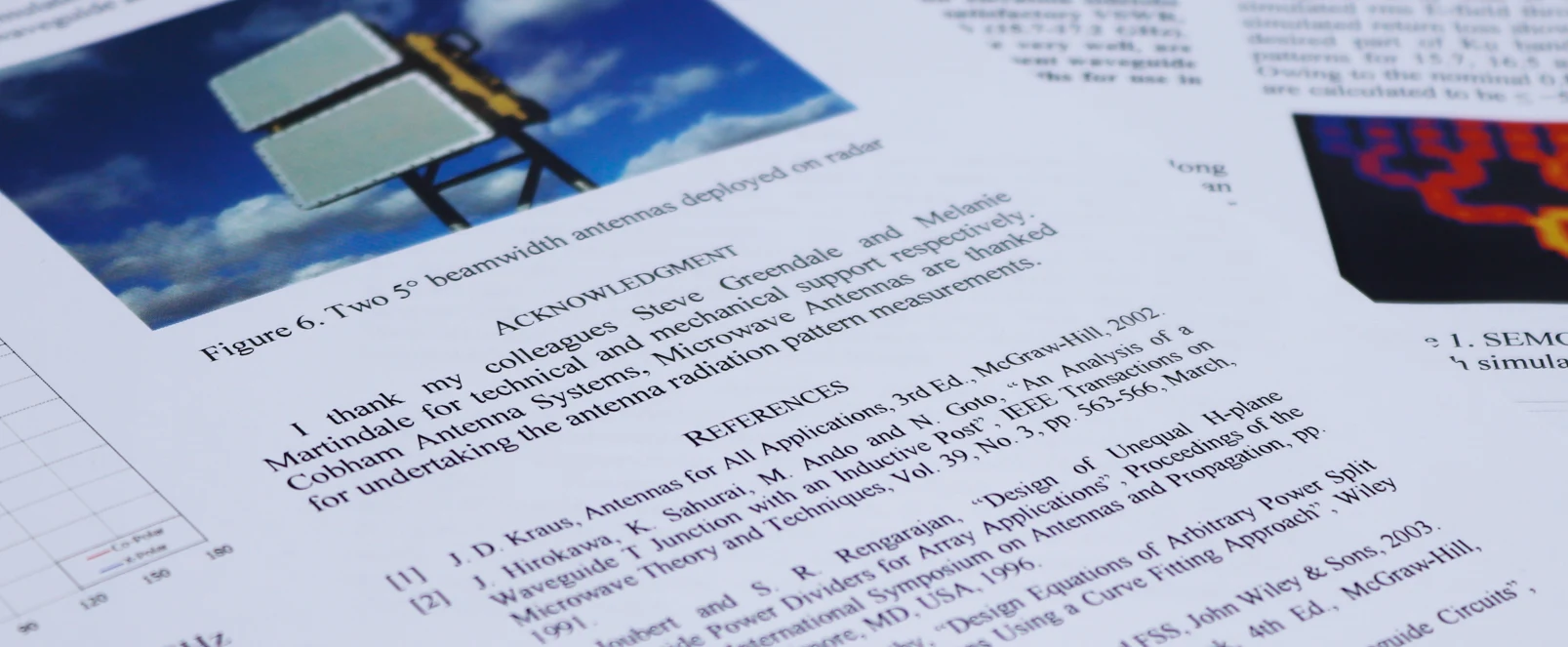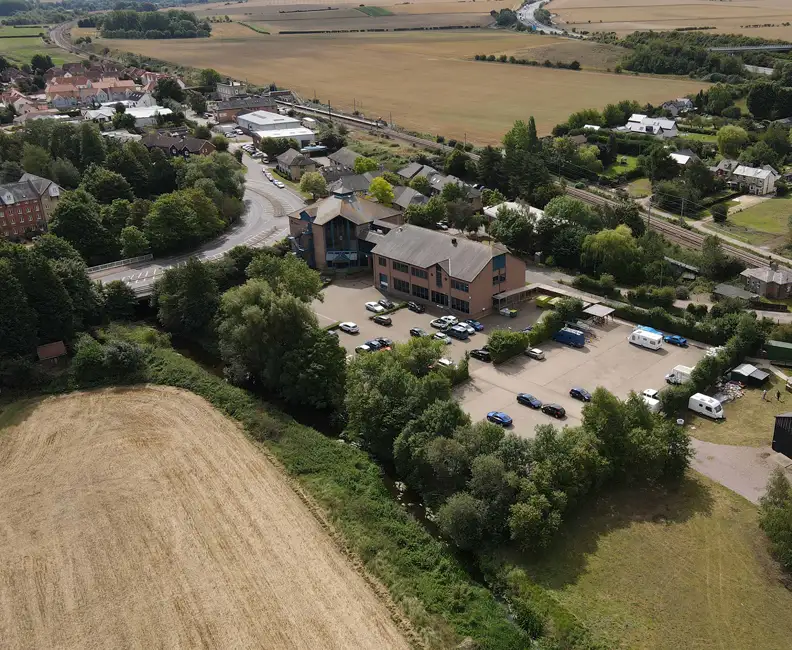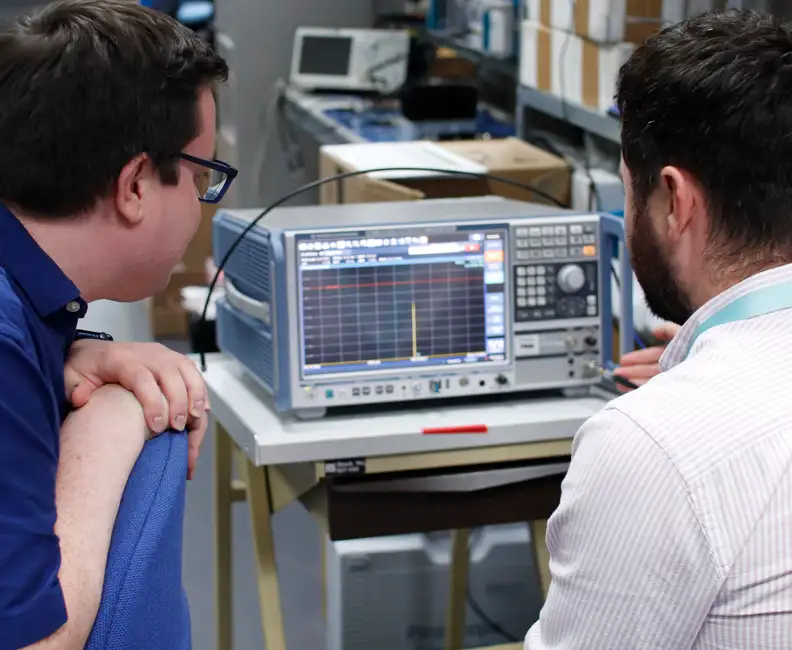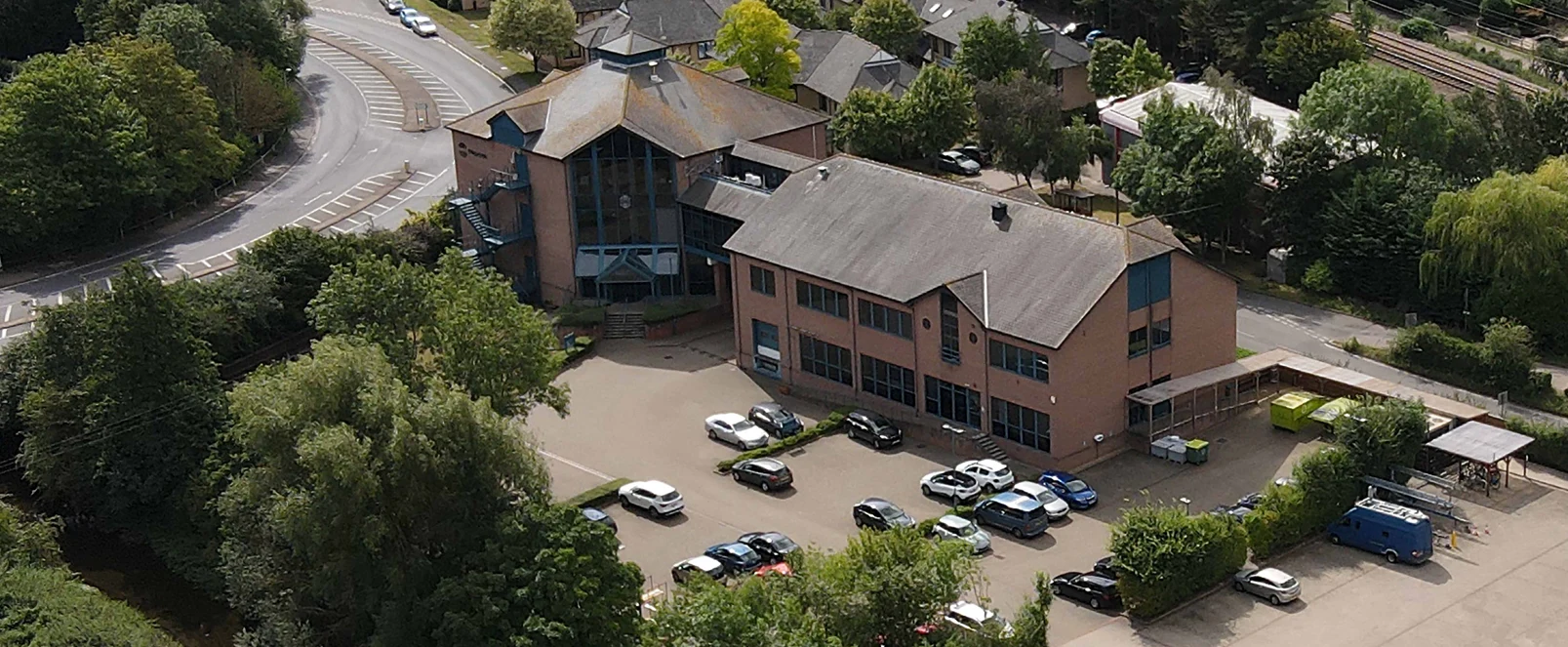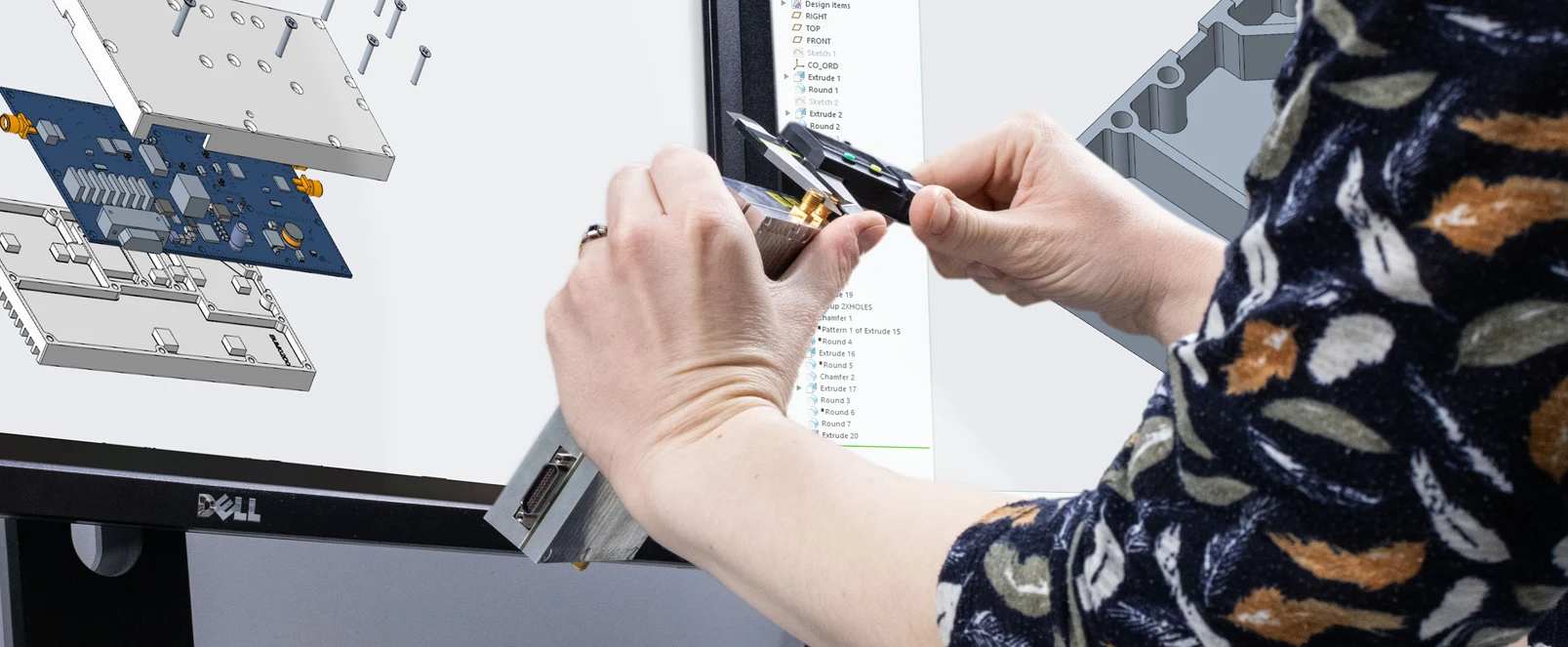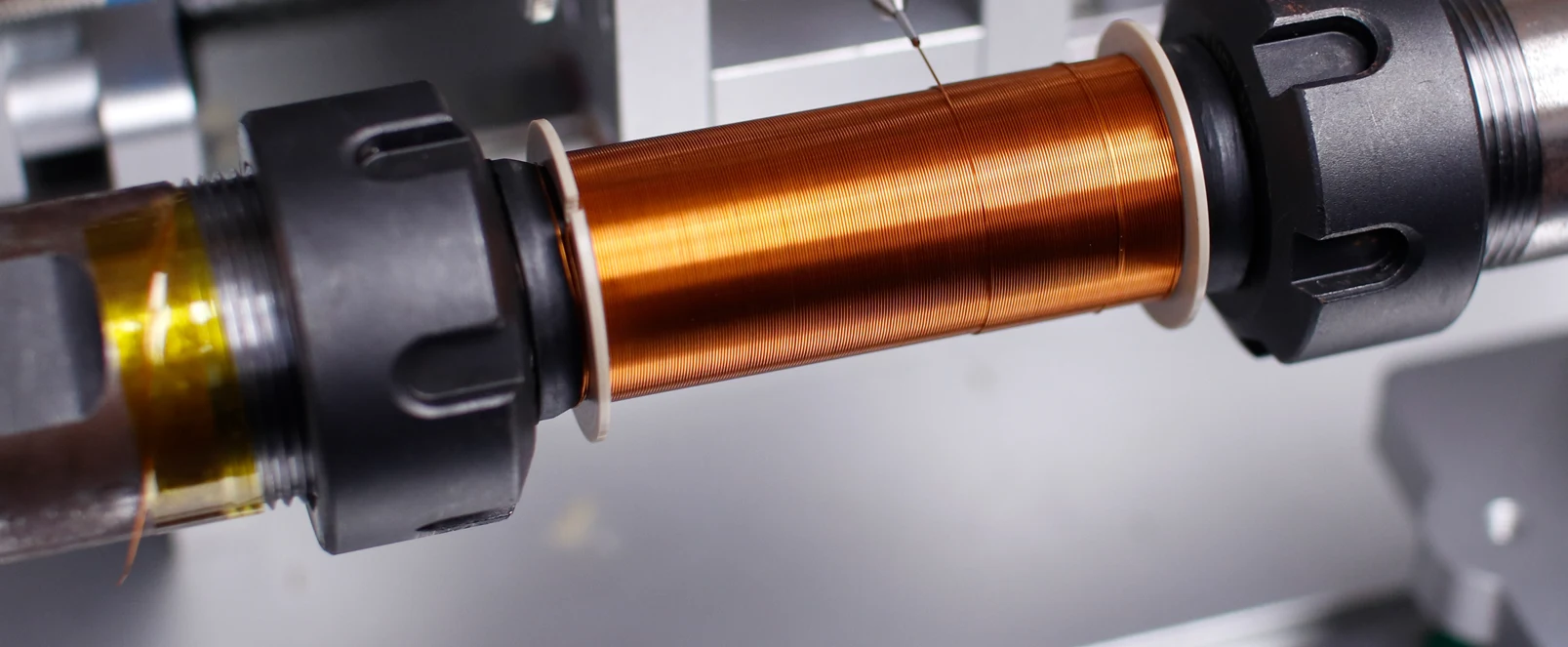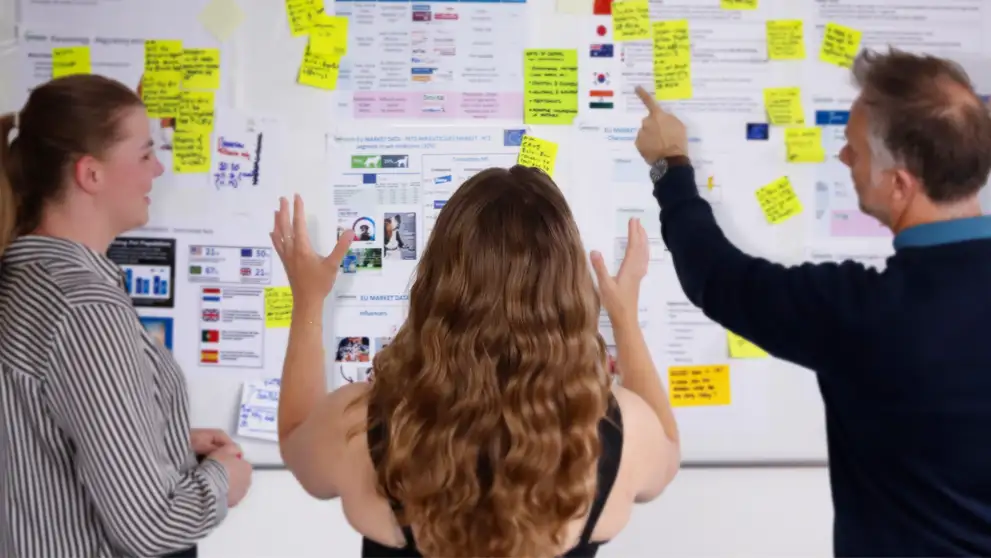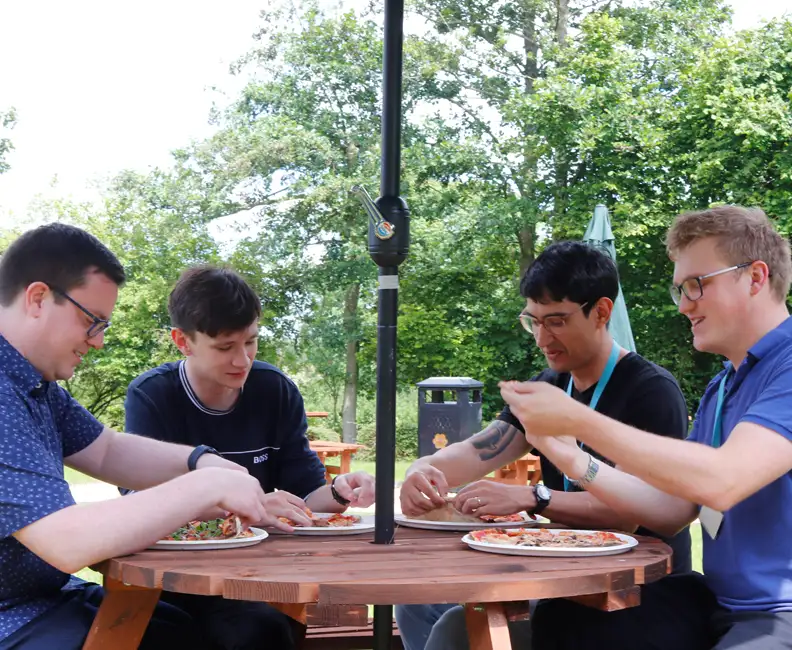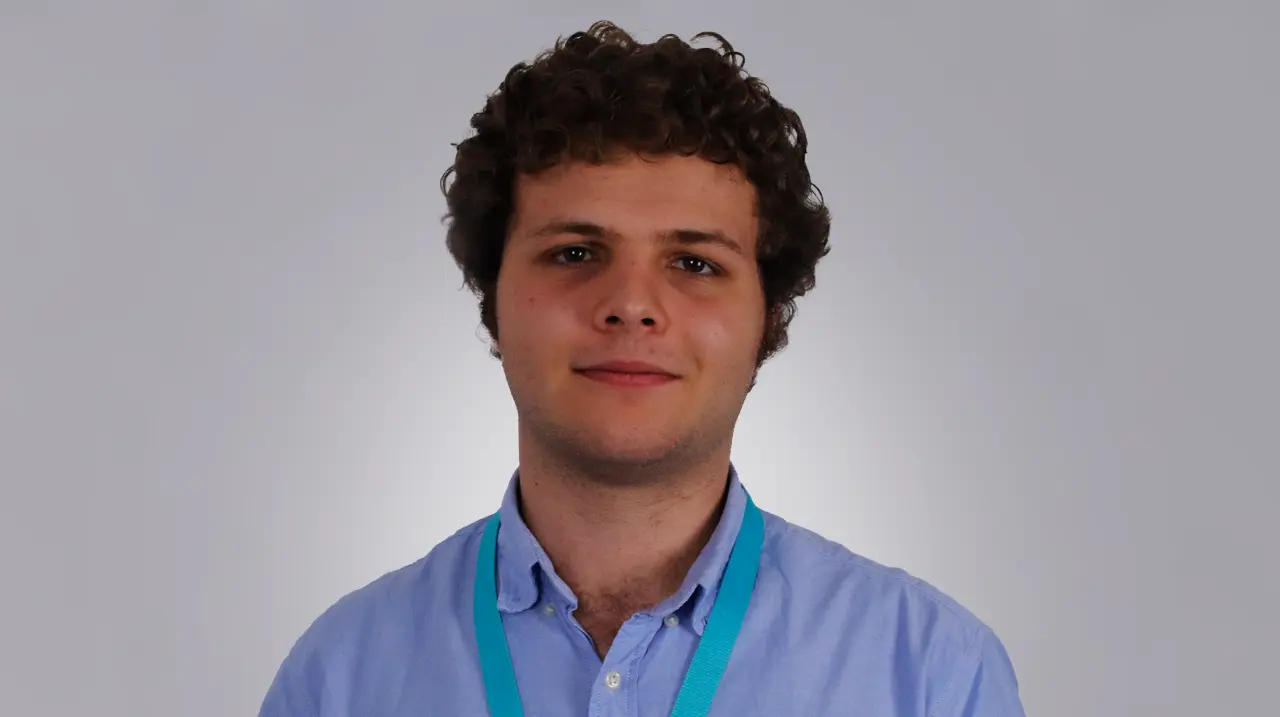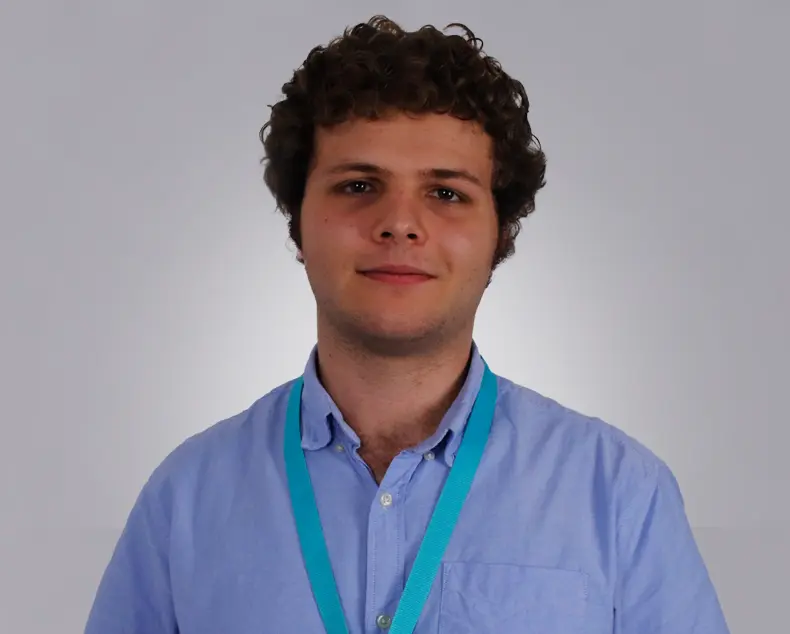We spoke with Liam Soutter, a Summer Placement Student from the University of Southampton, about his experience at Plextek.
Why did you to choose to apply to Plextek for your summer placement?
I applied for placements through the UKESF (UK Electronics Skills Foundation) scheme. I was drawn to apply to Plextek because they undertake a lot of projects in areas I am interested in, such as the embedded and RF space.
The initial project scope was a LoRa repeater node, intended to be dropped into existing networks to extend their range. LoRa is a wireless modulation technique derived from Chirp Spread Spectrum (CSS) technology. The scope was subsequently extended to include a full mesh network.
What were the main objectives of your project?
The aim of the project was to create a prototype that demonstrates the system functionality, and acts as a base platform to build on-top of. This would allow innovation by tailoring the system to meet the needs of the use-case, as opposed to trying to adapt a pre-existing solution.
Can you share a highlight during your placement that you are particularly proud of?
Watching packets move across the network in real time was exciting to see, as weeks of theory and simulation had led up to that point!
Plextek was able to provide hardware for me to test the project on: the networking algorithm needed to be tested with a reasonably sized network of nodes, which required lots of hardware – something that was provided to facilitate the project.
Did you face and overcome any unexpected challenges during your placement?
The project began using Arduino Uno microcontroller boards. The ATMega328p (the microcontroller) has significantly limited RAM and storage – although usually enough. I was testing a new version of the network algorithm and recording unexpected behaviour – after a lot of debugging, this was found to be caused by the Arduino running out of memory.
The solution was to move to the STM32 boards (with considerably more memory), as we knew the firmware was only going to grow. This involved porting the codebase over to the STM32 HAL, an endeavour well worth doing.
The STM32 board that was used is commonly used within the company – thankfully, this meant there were lots of experienced developers who were happy to answer questions I had about the boards and IDE as I was getting up to speed with the tooling.
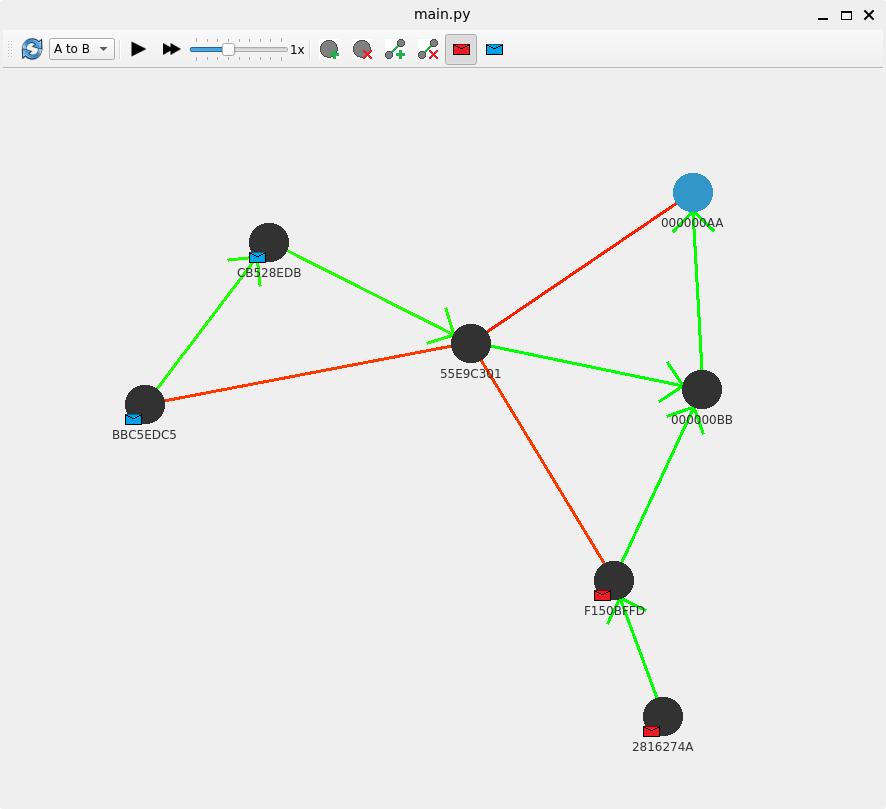

How has working on your project helped you in skill development in the specific technology related to your work?
Working on this project has helped me develop skills in many areas: firstly, working with LoRa has given me a much deeper understanding of how the protocol and LoRa transceivers function, and how other communications and data integrity concepts work (such as CRCs). Using the STM32WL microprocessors taught me a lot about the STM32 HAL and using CubeIDE.
The other major area my project worked in was GUI development. I developed multiple GUIs throughout the project, each (hopefully) better than the last, and learned (the hard way!) why using a GUI framework is so powerful.
How did your Plextek team contribute to your learning and development?
My mentor was there to keep my project on track and to answer any questions I had, as well as being a second set of eyes for parts of the project like the documentation. The weekly meetings we had were mostly spent whiteboarding mesh networks and poking holes in the protocol, so I could implement the changes in the following days. Since I was new to networking algorithms, he provided a starting point for each version of the protocol, which we then built on.
I would describe the work culture and environment at Plextek as very flexible and open. I was able to work flexibly, and I found everyone to be very approachable and friendly.
Working in an environment with many very experienced engineers is invaluable when quirks and difficult problems arise – it is very likely someone has solved the problem already! An example of this is a bug that exists in the radio library for the STM32 boards – something I would not have had time to find and fix.
What are your future aspirations?
I would like to return to Plextek for a graduate role after my experience at the company because I like the work culture, and the type of work they undertake. Projects can vary quite a lot, providing some variety, and I could request to work in specific areas.
The work is varied, and the team at Plextek did a great job of tailoring my project to be approachable by students of different skill levels and experience.
Plextek offers a wide variety of projects, and as a summer student they will tailor the project to your strengths – it’s worth going for it, even if you’re not sure about your experience or abilities.
If you are an enthusiastic, adaptable and motivated person who thrives on variety, enjoys learning new skills and facing exciting challenges then this is the place to be.
Find out more about our Early Careers & Summer Opportunities here Plextek Early Careers page







